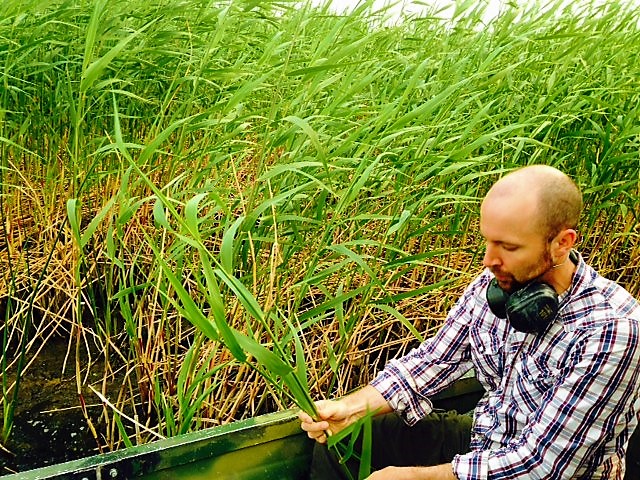
SENS professor receives New Researcher Award
Research that helps Northern Indigenous communities has made Timothy Jardine an international leader in applied aquatic ecology—it has also made him the most recent recipient of the New Researcher Award.
By Victoria Schramm“As an aquatic ecologist and river scientist, coming to the U of S was a no-brainer,” said Jardine, who arrived at the U of S in 2012 after completing a postdoctoral fellowship at Griffith University in Australia.
“I came to the U of S because I was keenly aware of the great group doing environmental toxicology research here at the Toxicology Centre, and due to the university’s investment in water research and the creation of the Global Institute for Water Security (GIWS),” said Jardine, who received the New Researcher Award at Spring Convocation.
Jardine studies the biology of streams, rivers and wetlands where he tracks toxic chemicals through aquatic food webs and studies how changes to river flows affect river ecology. By monitoring toxicity levels and other human impacts, his research helps to protect communities along northern rivers and deltas.
“In the past, environmental decision-making has often excluded the voices of the very people most greatly affected by development—those living downstream and downwind of industrial developments,” he explained. “My hope is that by partnering with Indigenous communities, researchers in different disciplines, and with key decision-makers, we can achieve more acceptable and sustainable outcomes from development.”
His research has made vital and groundbreaking contributions to our scientific understanding of northern riverine food webs and their potential risk to contamination and has had tangible impacts on the communities that live along these water sources.
“I am passionate about this research because it can lead to broader societal value beyond the academy,” he said. “By conducting interdisciplinary research, we can find practical solutions to help nearby communities. That is why the School of Environment and Sustainability is such a good fit for me, because it offers the opportunity to work with great colleagues whose expertise cuts across so many disciplines.”
With an impressive track record of publishing in some of the world’s best journals, Jardine has helped change the direction of aquatic science and he also has research funding to back his work, including funding from the Natural Sciences and Engineering Research Council of Canada and the Social Sciences and Humanities Research Council of Canada, totalling more than $5 million.
In addition to these accomplishments, Jardine has established productive international collaborations in Brazil, Singapore and Australia, where his work is being used by the Australian State and Federal Governments to determine the environmental impacts of planned water resource developments. In 2016, Jardine was awarded the highly competitive Water Security Research Excellence Award from the GIWS.
With the New Researcher Award now on his resume—an award presented each year to an outstanding new U of S scholar in recognition of their significant contributions to knowledge or artistic creativity—Jardine is motivated to move his research even further.
“I hope to unify understanding of river ecology across the globe, from the Arctic to the tropics and in between, so we can all enjoy the many benefits that our freshwaters bring,” said Jardine.
Article re-posted on .
View original article.

